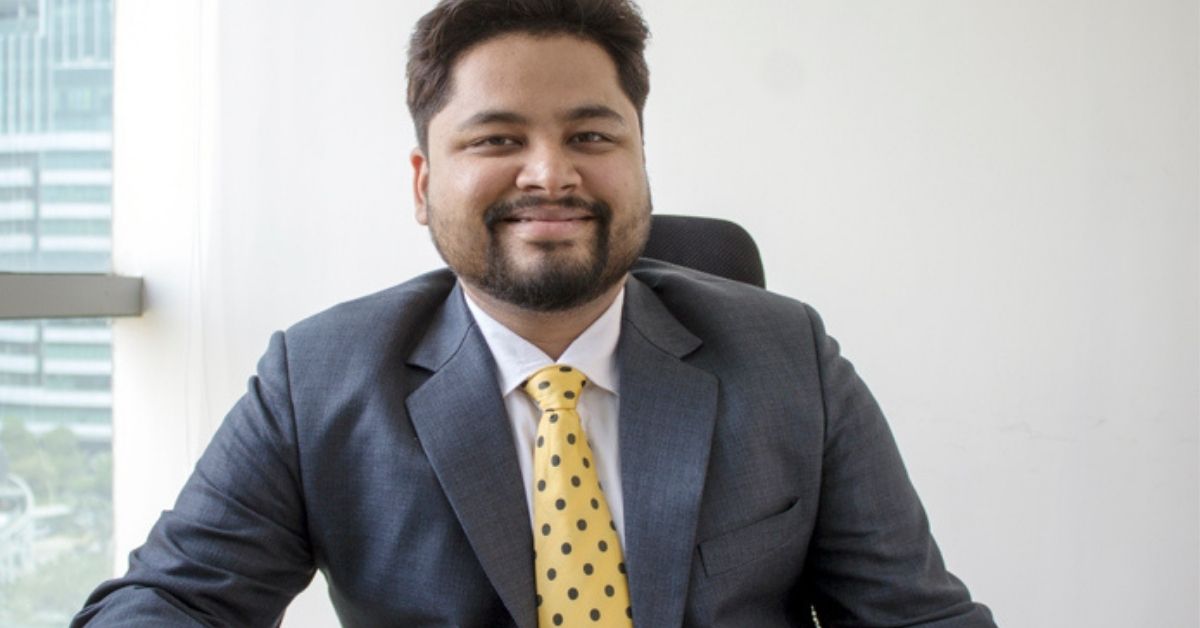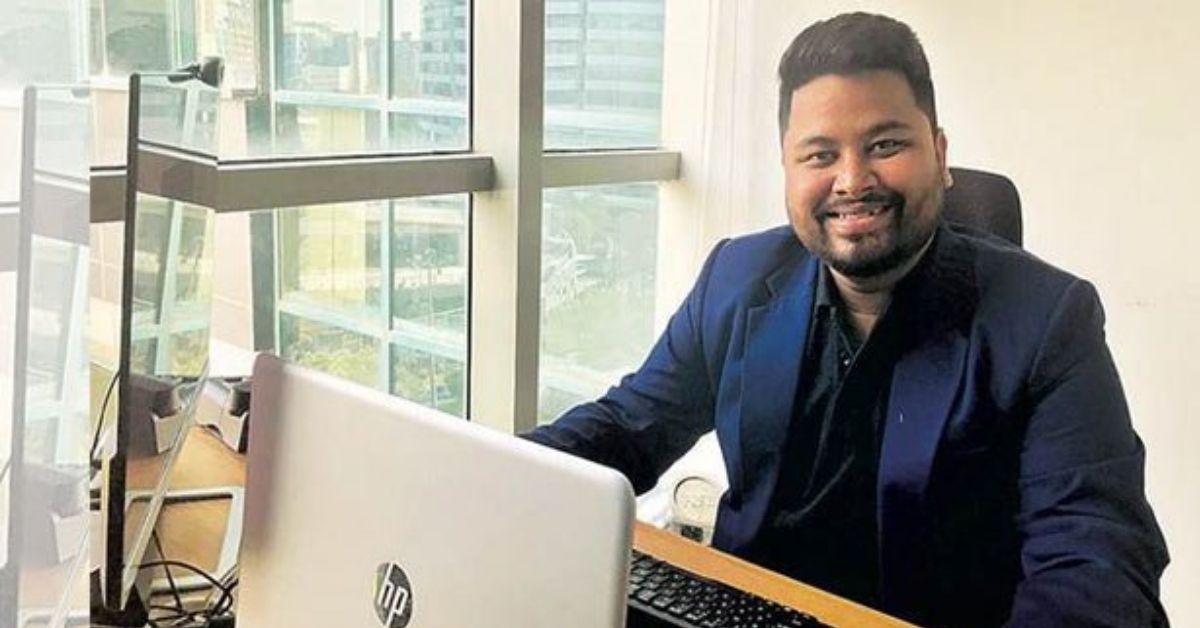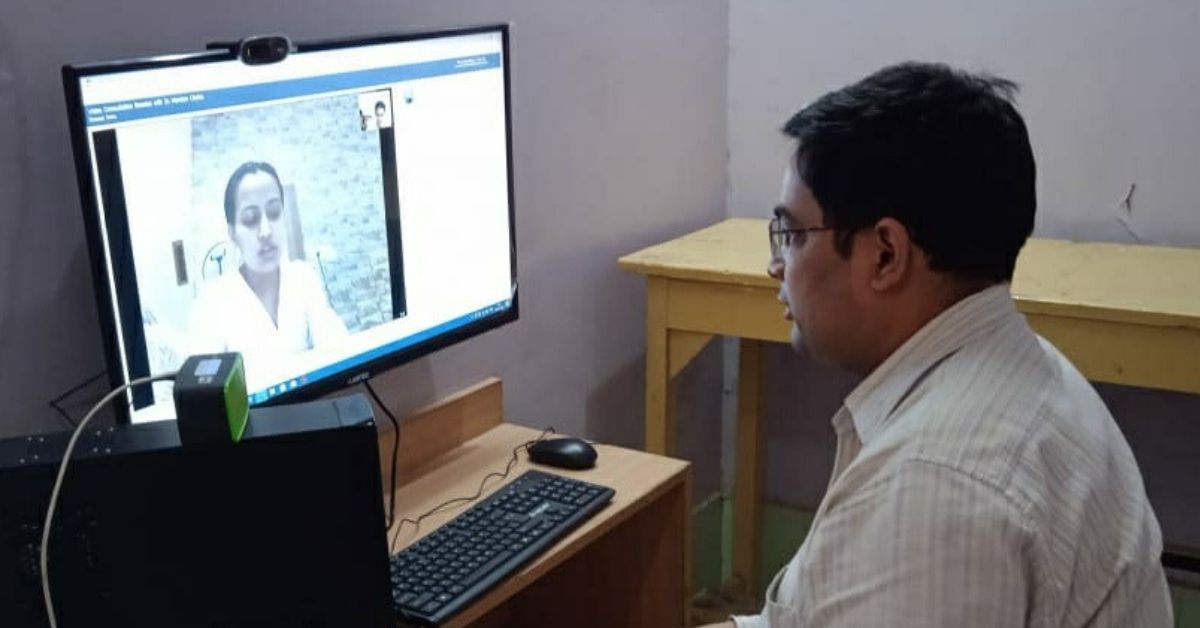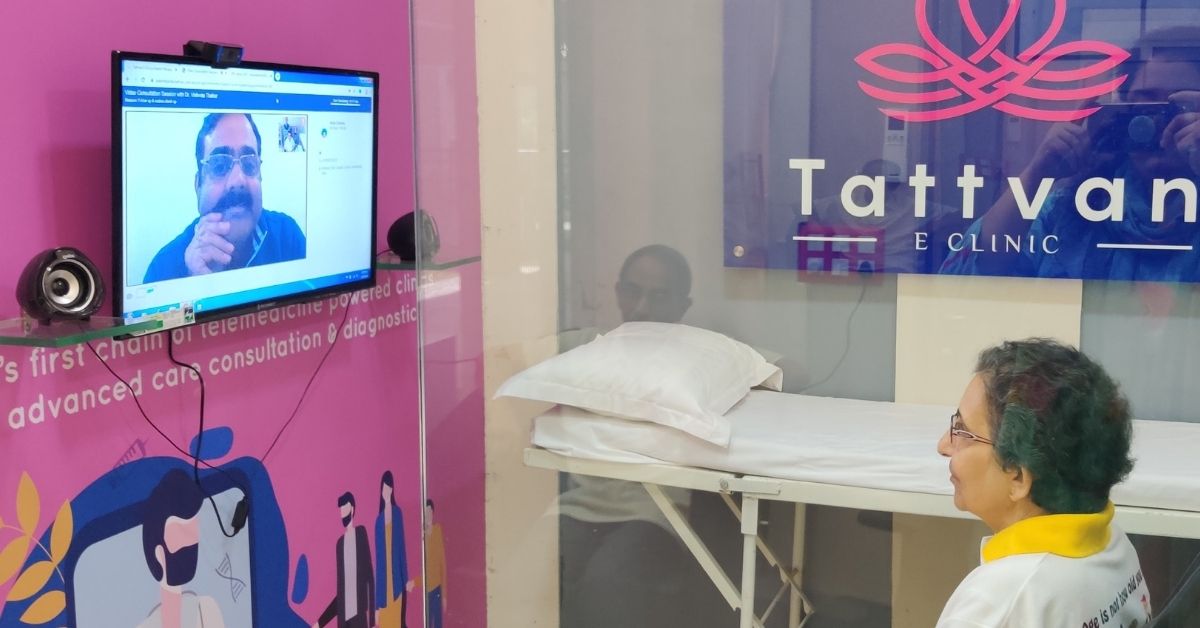After Losing Leg In Accident, UP Man Helps Small Towns Get Access To Big Hospitals
After a life-changing accident Ayush Mishra from Uttar Pradesh launch a telemedicine startup Tattvan E-clinic to connect residents of small cities to doctors in India's biggest hospitals.

In 2008, when Ayush Mishra was in his first year of college, he was riding pillion on a bike with his friend to their university in Jaipur. On the highway, a drunk truck driver rammed into the bike. “It was a terrible accident,” Ayush recalls. “I was left with the truck on my leg as the driver ran away. Those who stopped to help brought the truck driver back somehow, and asked him to move the truck off my leg.”
Ayush was first taken to a government hospital in Jaipur, where his parents arrived from Bareilly. They took him back to their hometown, but by the time he arrived in the city, his condition had worsened. “I slipped into a coma and the doctor who was treating my leg realised that a lot of infection had built up because of the negligence of the government hospital in Jaipur,” Ayush tells The Better India. “He told my parents that I might not survive if I didn’t receive proper care and asked them to take me to Delhi.”
He adds, “When you’re in smaller towns and cities, you often hear — ‘take them to Delhi or Mumbai’ or any big city that has better healthcare infrastructure. My father thankfully knew someone at Apollo Indraprastha Hospital [Delhi] at the time. But when an incident like this happens in small towns, there are many questions posed. For example, where in Delhi or Mumbai do you take the patient? What would be the cost? How much time will this take? How do you take them to the city in the first place? In my case, it’s not like I could just be put in a car, since I was in a coma.”
Luckily, the surgeon at Apollo guided Ayush’s father accordingly. Ayush remained in the hospital for around 90-100 days, underwent around 20 surgeries and was on the ventilator for 17 days. He lost his leg but managed to slowly recuperate. However, even after he started on the road to recovery, he’d have to frequent between Delhi and Bareilly for follow ups. He eventually recovered fully, returned to college and finished his engineering degree. But one thought always remained with him.
What if his father didn’t have any connections at Apollo? Would he have survived?
It was this incident that sparked the idea of trying to bridge the gap between people residing in Tier II and Tier III cities and quality healthcare provided in Tier I cities. In 2018, Ayush founded Tattvan E-Clinics, which is a tele-medicine venture that connects people in rural areas with doctors in urban cities for timely and adequate healthcare.

Making ‘the best’ doctors accessible
“We set up our first clinic in Bareilly in 2018 but we realised that while it’s a Tier II city, there is still some availability of surgeons and physicians. The larger need for a clinic like this was in rural areas,” Ayush notes. “We established clinics in Dehradun and Hyderabad, and while these were doing well, we were only working as referral agents of sort, where we were just ferrying patients from these towns to bigger cities but I wanted to put real value on the table.”
However, plans of expansion were put on hold due to the pandemic. As the first lockdown eased slightly, Ayush decided to work towards reaching rural areas. Around Diwali last year, Tattvan set up its first franchise clinic in Lalganj, near Varanasi. “It worked wonderfully. We thought the local doctors, who are often called jholachaps, would create some friction for us. But instead, they ended up being our most trusted partners. They helped us establish and run our clinic smoothly.”
Tattvan has 80 clinics across Uttar Pradesh, Uttarakhand, Bihar, Jharkhand, Madhya Pradesh and Rajasthan. The organisation aims to establish 400 clinics by the end of this year. Currently, over 500 physicians have attached themselves with the venture.
Providing more insight into the work that Tattvan does, Ayush says, “If you walk into any of our clinics, even in the remotest and most rural parts of the state, you will be able to access the best cardiologists, oncologists or any type of doctor you need. You can also connect with the nearest doctor to you. So it’s not like if you’re a patient in Lalganj then you’ll connect with a doctor in, say, Kerala. In case you need to pay the doctor a visit, things won’t be too hard for you. You’ll get prescribed tests and medicines.”

Ayush notes that to find doctors or specialists treating infectious, cardiovascular, endocrine or neurological diseases in rural areas is extremely difficult. “Even in a city like Bareilly, finding an endocrinologist was very hard. So village areas are worse off. Patients will have to travel to different districts and travel for hours at end to get proper treatment. Cardiac or diabetic patients need regular doctor visits and prescriptions so that they can avoid future hospitalisation. In villages, since this solution is not easily available, patients will go back to old grandmother remedies, which increases risk of hospitalisation. We work to reduce this risk, and have been able to do so by around 70 per cent,” he says.
Optimising affordable healthcare
Speaking about trying to bring quality healthcare to the remotest parts of the country, Ayush says, “It’s one of our biggest challenges. It’s not for logistical reasons, but rather cultural aspects. When we began, patients would often come and ask us — ‘If the doctor hasn’t even touched us physically, how do they know we’re sick?’ So the biggest challenge here is patient education in terms of what options are available to them and the power of those options.”
“We started off slowly, and as one or two patients came to us, we were able to establish a level of trust. Then they recommended us to their peers and so on. We tweaked our business model whenever required. Today, we’ve been able to minimise that challenge by more than 90%,” Ayush says.

Ayush also notes that patients being treated at Tattvan’s e-clinics pay less than they would elsewhere. “An average doctor consultation in, say, Delhi, will cost between Rs 1,000 and Rs 1,500. At Tattvan, a patient pays Rs 600 per consultation,” he says.
After the onset of the COVID-19 pandemic, Tattvan also launched facilities in Tier II and III cities—including Kairakat, Balrampur, Phoolpur, Sonbhadraand Banaras in Uttar Pradesh and Malsisar district in Rajasthan—wherein they provided ‘Self-care Assessment COVID Packages’ to people so they could avail teleconsultation, timely medication, COVID-19 related results and medicines from the comfort of their homes.
“Doctors who we have tied up with are now a little more inclined towards telemedicine,” Ayush says. “Earlier, this was a huge challenge, because doctors were hesitant about offering services without personal interaction, and because there was a lot of medico-legal ambiguity. After the coronavirus pandemic began and the government laid down clearer guidelines for telemedicine in India, the motivation in doctors to treat patients this way has increased.” In 2020, Tattvan bagged the Asian Achievers Award for Best Rural & Social Healthcare Business in India, supported by the Ministry of Social Justice & Empowerment, Government of India.
However, he notes, “Telemedicine is just a tool. We have to focus on primary healthcare. If you have a solid infrastructure in that area, you could significantly reduce unnecessary hospital admissions. That’s what Tattvan is working towards. The condition of PHCs around India is not up to the mark yet, and this has been highlighted yet again amid the pandemic. Many are non-operational and lack adequate manforce. So we have a long way to go. My vision here is to optimise healthcare and improve the doctor-patient ratio in rural India.”
For more information or to visit these clinics, you can check out Tattvan’s website.
Edited by Yoshita Rao
If you found our stories insightful, informative, or even just enjoyable, we invite you to consider making a voluntary payment to support the work we do at The Better India. Your contribution helps us continue producing quality content that educates, inspires, and drives positive change.
Choose one of the payment options below for your contribution-
By paying for the stories you value, you directly contribute to sustaining our efforts focused on making a difference in the world. Together, let’s ensure that impactful stories continue to be told and shared, enriching lives and communities alike.
Thank you for your support. Here are some frequently asked questions you might find helpful to know why you are contributing?


This story made me
-
97
-
121
-
89
-
167













